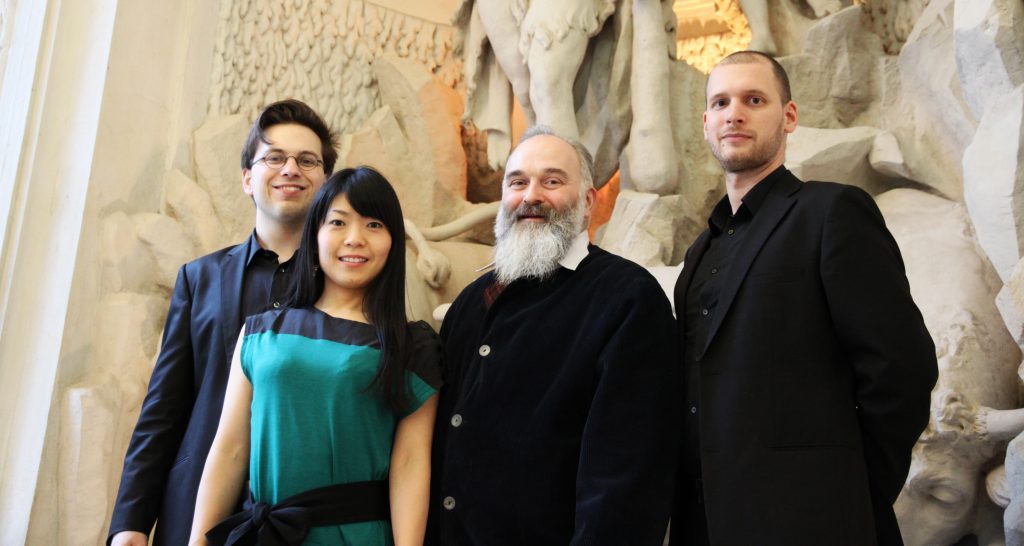1 October 2017 marks the opening of “Stones of Remembrance” in Westbahnstraße. Following the presentations by the four artists or artist groups, a concert by the ensemble Cappella Splendor Solis took place at the Parish Schottenfeld.
Cappella Splendor Solis is an ensemble founded in 2014 with young talented musicians who, together with their mentor, Professor Josef Stolz explore the musical transition phase from 1550 to 1650. The era begins with the slow fading of the Renaissance and ends with the emerging Baroque. An almost unexplored period in musical history that, according to Josef Stolz, has a lot to offer. The old, the new and the convergence between the two. In the course of the opening of “Stones of Remembrance” in Westbahnstrasse, Cappella Splendor Solis brought long forgotten pieces back to life in their song and thus commemorate the lost and deported. The elaboration of their contribution is due to a coincidence as the leader of the group, Josef Stolz, came across traditional songs by a once large sephardic community in Vienna – shortly after he learned about the project in Westbahnstrasse. Together with the ensemble, the melodies and lyrics were brought back to the spotlight. Awe is uncalled for here, according to Josef Stolz. It is a wonderful feeling to bring back the forgotten from the depths of the past. To fully comprehend the work, one must allow the enthusiasm of the artist instead of being kept back by the consciousness of a historian.

The group finds it very important to especially remind us of the strong feeling for community that existed in Vienna prior to the atrocities of the National Socialism. Judaism shaped both the architecture and culture of Vienna and contributed to laying the breeding ground that made the capital the art metropolis that it is today, added Josef Stolz. Some interesting details are that for example Franz Schubert composed in Hebrew or the maestro di cappella of St. Stephan composed the inaugural cantata for a large synagogue.
Jewish music is not a homogeneous phenomenon as Judaism is spread all over the world, thus all kinds of cultures influenced the lyrics and melodies. Prof Josef Stolz tells us an anecdote that is not directly related to Judaism but that describes the topic “wandering art”. He proved that a Spanish melody that is sung still today, originated in India and has also spread to the Arabian region. That just goes to show that barriers are mainly in our heads. After all, no matter how diverse us people may be, we are all similar in the end.







